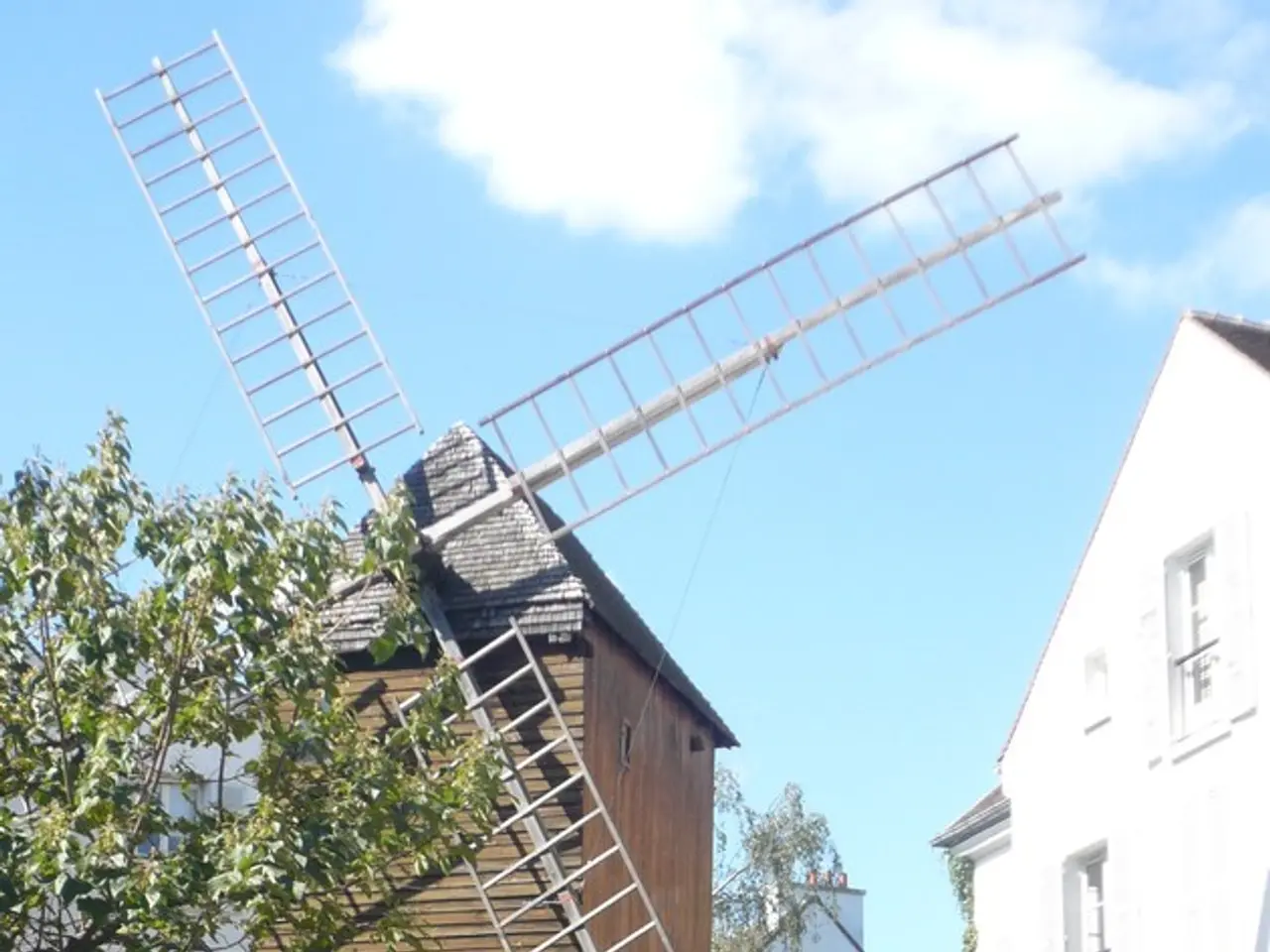Wind farm debate centering around proposed project on B47 highway near Wormser region
In the picturesque region between Horchheim, Pfiffligheim, and Wiesoppenheim, RENOLIT, a Worms-based chemical industry company, is planning to build a wind farm on agricultural land. This initiative marks a significant step towards the company's goal of becoming CO2-free by 2045, aligning with Germany's climate protection targets [1][2].
The wind farm, managed by Juwi, is expected to consist of five powerful wind turbines, each reaching up to 290 meters in height. The turbines will be situated approximately one kilometer away from the nearest settlement, with electricity generated by the wind farm flowing into the plant via a 1.8-kilometer-long direct line. The project aims to produce a total of 90 gigawatt hours of electricity per year [1].
The city council will publicly discuss the topic in its next meeting and make a corresponding resolution. If approved, the site will be included in the regional wind turbine area plan for further planning and approval steps. The city treasury could potentially benefit from annual payments of around 180,000 euros from the Renewable Energy Act (EEG) based on the generation of renewable energy [2].
While specific details on electricity production and job implications are not yet disclosed, the project aligns with RENOLIT's ongoing investments in its Worms site, suggesting a commitment to the region and its workforce. The wind farm could potentially contribute to job retention or creation related to renewable energy management and plant operation [1].
Regarding land use, the wind turbines will be installed on non-urban, possibly agricultural or open land. No information about land acquisition controversies or negative impacts on farming has been indicated [1][2]. The choice of location near highways likely minimizes disturbance to residential zones.
For the local community, typical considerations for such projects include visual changes, noise, and effects on local ecosystems. Since the project is industrial and company-driven, local engagement and regulatory processes would presumably address these aspects. No reported conflicts or opposition have been noted.
In a bid to store surplus electricity, RENOLIT plans to invest in storage facilities instead of feeding it into the power grid. The company also announced a 130 Million Euro investment for the next five years, which includes plans to move its production facility in Frankenthal to Worms, increasing production [2].
The constantly rising electricity costs pose a challenge for the company, but the wind farm project is part of RENOLIT's strategy to become more energy-independent and reduce costs in the long run. The wish is that any additional income from the wind farm benefits the three districts most affected by the wind turbines [1].
[1] Source: https://www.badische-zeitung.de/wirtschaft/renolit-will-in-worms-windkraftanlage-bauen-id242014437.html [2] Source: https://www.worms-online.de/nachrichten/worms-neuigkeiten/renolit-will-in-worms-windkraftanlage-bauen-id242014437.html
The Economic and social policy implications of RENOLIT's wind farm project may include potential job creation or retention in the renewable energy sector, as well as annual payments to the city treasury from the Renewable Energy Act (EEG). The company's commitment to environmental-science, as demonstrated by its wind farm initiative and investment in storage facilities, aligns with Germany's general-news goals of climate protection and reducing reliance on non-renewable energy sources. The wind farm, being a technology-driven project, promises to address environmental concerns related to local ecosystems and noise through local engagement and regulatory processes outlined in its planning and approval steps [1][2].




